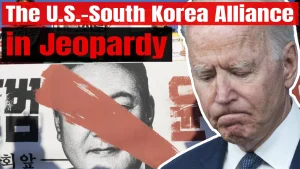In the Upheaval of the Middle East, What can China do?
What is the difference between the Russia-Ukraine conflict and the Israel-Hamas conflict? The answer is: no one knows when the former will end, while no one knows when the latter will begin again even if it ends.
Can China help win peace in the Middle East? The question is asked because of the obvious limitations of the other major powers at the moment.

Russia has considerable influence in the Middle East, but given that it is fighting a war of its own, with Iran believed to be one of its arms suppliers, it has little hope of winning Israel’s trust. The EU is deeply polarized and powerless in the face of pro-Palestine Muslim protests across the continent and beyond. The US, being Israel’s staunch ally, has historically provided unconditional support to Israel in all conflicts.
That leaves China. After brokering a historic rapprochement between once-estranged Saudi Arabia and Iran, a more ambitious Beijing had been trying to initiate peace talks between the Israelis and Palestinians even before the latest conflict erupted.
Chinese support for the Palestinian cause goes back to the days of Mao Zedong. At the same time, China has developed robust economic ties with Israel starting from the 1980s. Tel Aviv has said it was disappointed that Beijing did not denounce Hamas directly in the wake of the October 7 attacks. But, as foreign ministry spokeswoman Mao Ning put it, Beijing considers itself a friend to both Israel and Palestine.
Since the latest outbreak of violence, Beijing has made phone calls, provided humanitarian aid and sent an envoy to the region. But the best thing China can do – short of stopping Israeli retaliation, a mission impossible even for the UN – is help avert a regional conflagration.
This is possible. Middle Eastern countries have moved closer to China in recent years. In the recent expansion of the China-centered Brics grouping, four Middle Eastern countries – Egypt, Iran, the UAE and Saudi Arabia – joined.
Especially helpful now is if China could use its sway with Iran, a long-term supporter of Hezbollah, to prevent the militant group from opening a war front in Israel’s north. Hezbollah is a more serious threat to Israel than Hamas because of its vast arsenal of missiles and thousands of experienced fighters.
Another area where China could contribute is in peacekeeping. Israel is unlikely to eliminate Hamas with its war, and an Israeli occupation will surely backfire. This means peacekeeping could be needed one day.
Israel has in the past rejected Palestinian calls for peacekeepers in Gaza and the occupied West Bank, but it may have to reconsider this.
The first UN peacekeeping mission was in fact set up to monitor the truce agreement in the 1948 Arab-Israeli war. Today, peacekeepers are authorised to do much more than observe a ceasefire. They can help protect civilians, maintain civil order, repatriate refugees and rebuild basic services. China, which is already the largest provider of peacekeeping troops among the permanent members of the UN Security Council, is well placed to lead this peacekeeping effort.
Much has been said about how Beijing might fill the vacuum left by Washington in the Middle East. This is misleading. Even if Washington wants to leave, it cannot extricate itself, as can be seen in the current conflict.
Instead, Beijing and Washington have common interests in a stable and peaceful Middle East. Neither side has any reason to oppose efforts by the other to foster peace. Notably, both share similar views on the two most important issues in the region – a two-state solution for the Israeli-Palestinian conflict, and preventing the Iranians from developing nuclear weapons.

As Gaza grapples with the worst violence in 50 years, the two-state solution first proposed in a 1974 UN resolution looks like utopia now. Therefore, Beijing and Washington should join hands in diplomacy, adopting the two-state solution as the paramount principle guiding any road map forward.
Without a political solution, the Israelis will always live in fear. And the latest violence has brought home why the Palestinians deserve a homeland.
Beijing and Washington must also work together to find a solution to the Iranian nuclear impasse. The Gaza war will exacerbate Iran’s concerns over its own security, and may make it more determined to develop nuclear weapons.
On this issue, China’s biggest advantage is Tehran’s trust. China has been the only major power to give Iran an economic lifeline in the face of US sanctions. China should make it clear to Iran that even if it is entitled to the peaceful use of nuclear energy, Iran must not develop nuclear bombs under its guise.
This distinction must be made. Despite its solid relations with Russia, for example, China also made it crystal clear it would not tolerate the use of nuclear weapons.
Thus Beijing should tell Tehran that even if Iran were to succeed in developing a nuclear bomb, it would not enhance its security. Instead, Iran might suffer a pre-emptive military strike by Israel, or Israel and the US together. It would most certainly invite severe UN sanctions, which China, despite being Iran’s largest trading partner, has to honour.
A nuclear-armed Iran might trigger a chain reaction of other regional powers, such as Saudi Arabia and Turkey, developing nuclear weapons. Like a nuclearised North Korea, Iran would never become a “normal country”.
In a region where my enemy’s enemy is not necessarily my friend, China’s traditional neutrality makes sense. But China is also the only major power that is friendly with the regional players. This is a huge asset. Beijing should make the best of it to make the Middle East safer.



